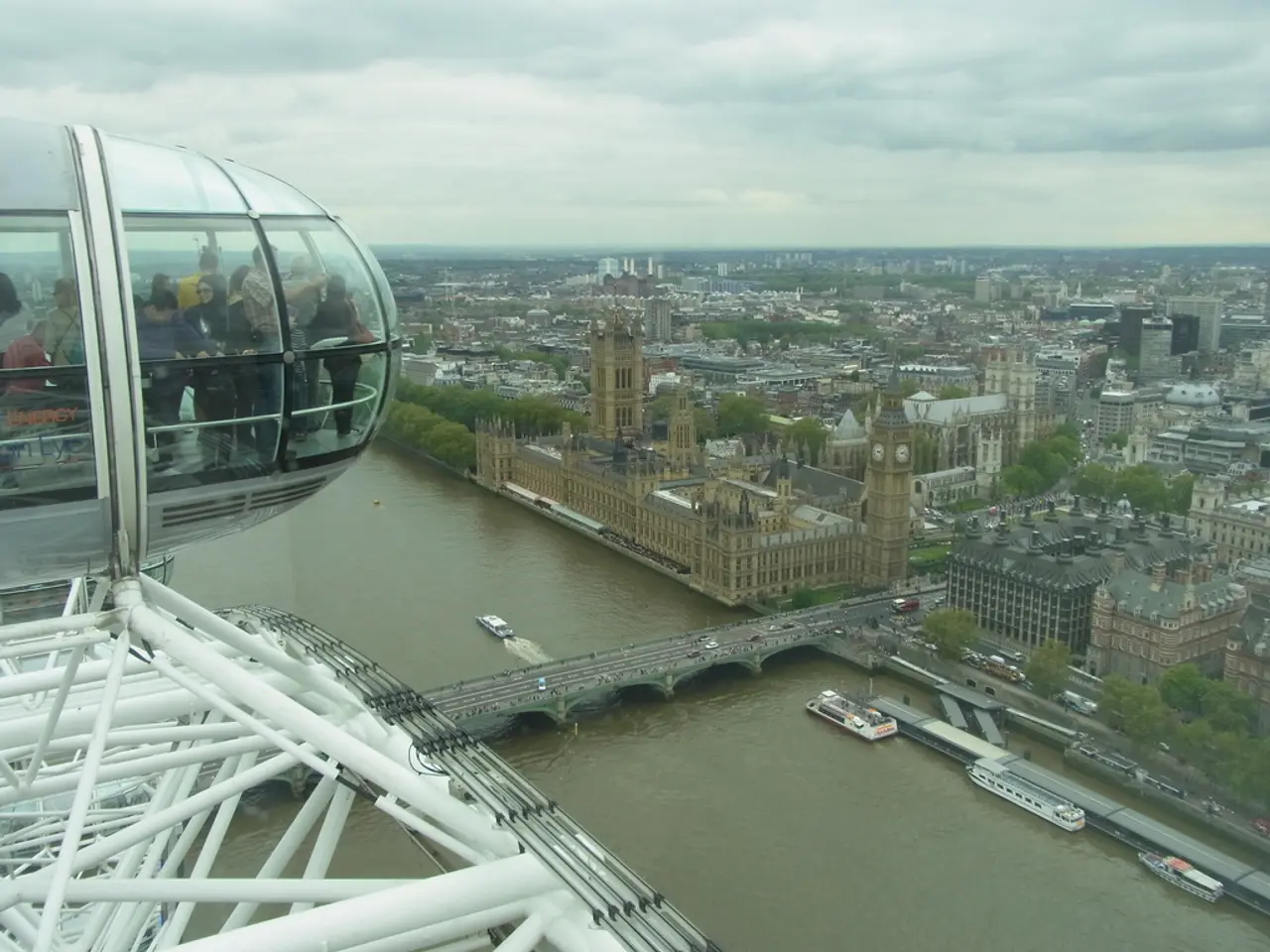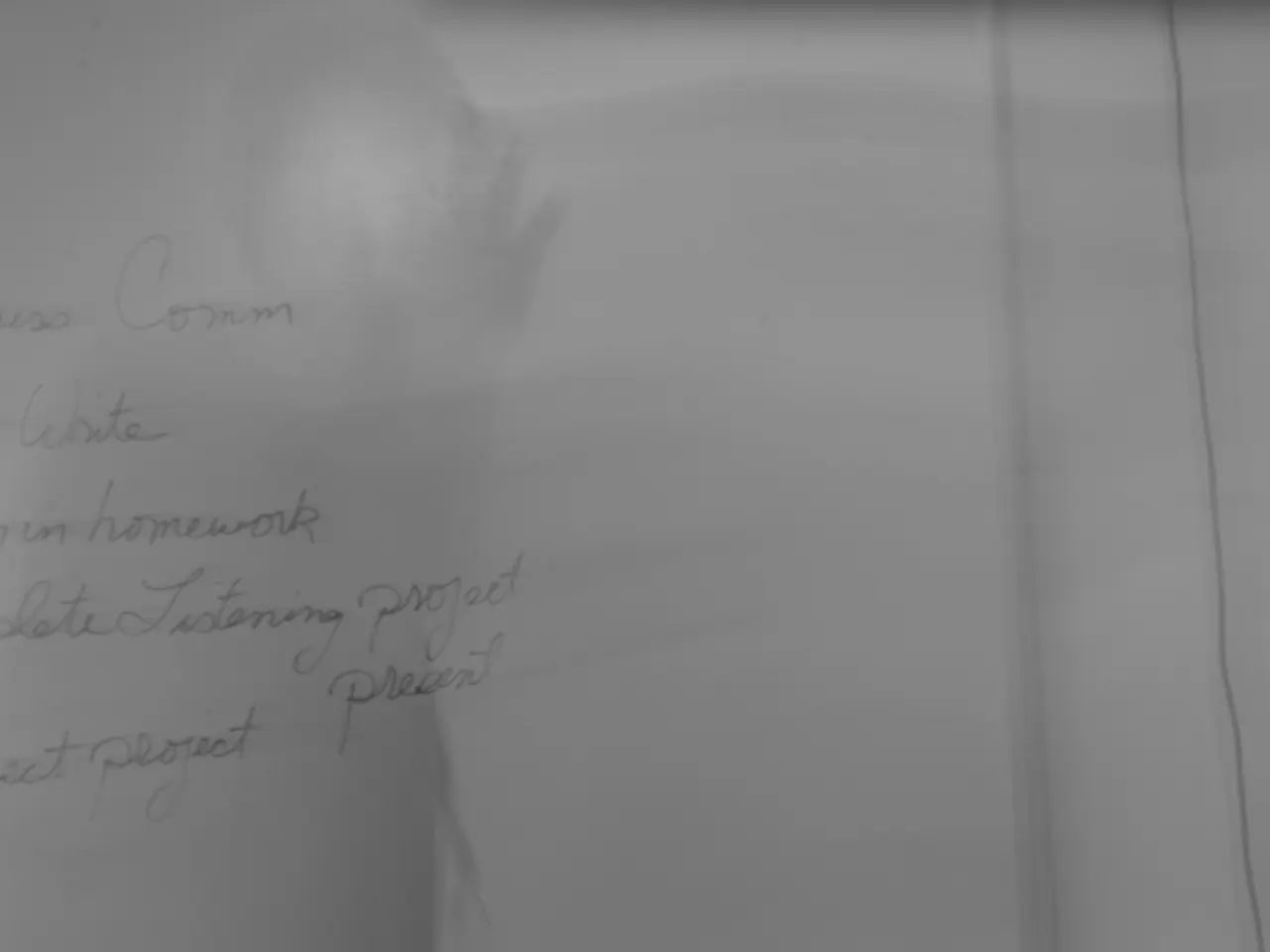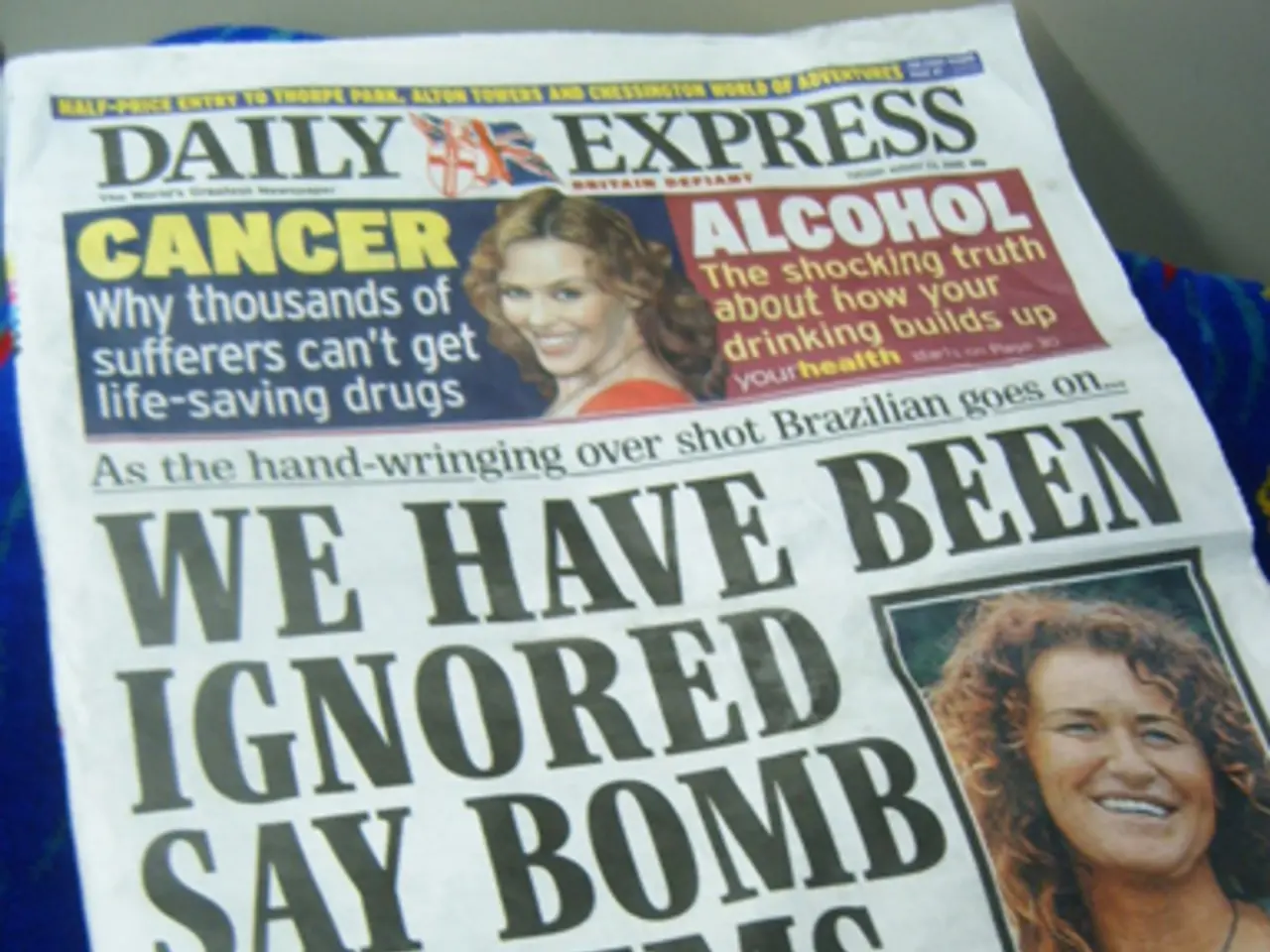Worsening Scenarios for Labour's Second Year in Power: Imminent Challenges Over the Next 12 Months
The Labour government, led by Chancellor Rachel Reeves, is bracing itself for a challenging year as it grapples with potential tax increases and fiscal difficulties. As the government celebrates its first year in power, political chaos looms, with the markets showing little patience for a Labour administration incapable of passing a £5 billion cut through Parliament.
Reeves is running out of road when it comes to her fiscal rules not to increase borrowing for day-to-day spending. To address funding gaps, she has announced illustrative tax changes, such as adjustments to National Insurance Contributions (NICs) for both employees and employers, which could raise hundreds of millions in additional revenue. Carried interest taxation, income tax adjustments, cuts to the cash ISA limit, and possible hikes in Value-Added Tax (VAT) are also under consideration.
One of the most significant challenges facing the government is the need to raise tens of billions to meet spending commitments. Reeves has warned that this will be a "big challenge," with estimates suggesting up to £30 billion might be required to cover policy U-turns and lower GDP forecasts. The UK's weak economic performance, including a GDP contraction of 0.3% in April 2025, puts additional pressure on public finances and limits fiscal headroom for spending without tax increases.
Spending pressures, such as partial U-turns on policies like winter fuel payments and pressure to lift the two-child benefit cap, add to fiscal strains, increasing the need for either tax rises or spending cuts. Reeves seeks to avoid emergency spending cuts while maintaining market confidence, a delicate balance she must strike between investment in priorities like health, defence, and infrastructure, and fiscal discipline.
Political constraints also pose a challenge. Labour's pledge not to raise taxes on "working people" limits the government's options, increasing the likelihood that middle-income earners may face higher taxes. Past increases in National Insurance have disproportionately affected this group.
Despite these challenges, there are discussions within Labour circles about imposing a wealth tax on assets over £10 million. However, it remains to be seen whether this proposal will be implemented, and whether it will be enough to fill what experts say is shaping up to be at least another £20 billion black hole.
Meanwhile, the Prime Minister's power is diminishing, as evidenced by a large majority that is comparable to the size of the moon. Starmer delayed a reshuffle before the summer break as he works out whether he can keep his Chancellor, Rachel Reeves, who was seen weeping, symbolizing the party's woes. Angela Rayner, Deputy PM, is expected to engage in empire building in Downing Street.
As the Labour Party's Autumn Party conference approaches, it is expected to be marked by internal disputes, as the party is losing voters from both the right and the hard-left. Another raid on Capital Gains seems inevitable, but that's unlikely to be enough to fill the fiscal void. With Reform continuing its long march up the polling numbers, it could be a bloody night for the Government.
No PM in modern times who has seen the second most powerful person in the government forced out has gone on to win the subsequent election. The Chancellor of the Labour Government was seen weeping, symbolizing the party's woes. Yet it's clear there are plenty of duds in the Cabinet who should be moved on.
With Donald Trump scheduled to visit the UK twice, potentially creating challenges for No10, the Labour government has its work cut out for it in the coming year. The question remains whether Reeves and Starmer can navigate these challenges and deliver on their promises while maintaining market confidence and appeasing their own party.
- The Labour government, led by Chancellor Rachel Reeves, is preparing for a difficult year as they deal with potential tax increases and economic struggles.
- Reeves is struggling to maintain her fiscal rules that prohibit increases in borrowing for daily spending.
- To bridge funding gaps, she has proposed potential tax changes such as adjusting National Insurance Contributions (NICs) for both employees and employers, which could generate hundreds of millions in extra revenue.
- Other tax adjustments under consideration include carried interest taxation, income tax modifications, cuts to the cash ISA limit, and possible increases in Value-Added Tax (VAT).
- One of the major challenges for the government is the need to raise tens of billions to meet their spending commitments.
- Reeves has warned that this will be a significant challenge, with estimates suggesting up to £30 billion might be necessary to cover policy U-turns and lower GDP forecasts.
- The UK's weak economic performance, including a GDP contraction of 0.3% in April 2025, places additional stress on public finances and reduces fiscal headroom for spending without tax increases.
- Spending pressures, like partial U-turns on policies like winter fuel payments and pressure to lift the two-child benefit cap, add to the fiscal strain, increasing the need for either tax rises or spending cuts.
- Reeves aims to prevent emergency spending cuts while maintaining market confidence, a delicate balance she must achieve between funding investments in priorities like health, defence, and infrastructure, and fiscal discipline.
- Labour's pledge not to raise taxes on "working people" limits the government's options, increasing the likelihood that middle-income earners may face higher taxes.
- There have been discussions within Labour circles about imposing a wealth tax on assets over £10 million, but its implementation remains uncertain.
- Another raid on Capital Gains seems imminent, but it's unlikely to be enough to fill the fiscal void.
- With Reform climbing in polls, the upcoming Autumn Party conference could be a challenging night for the Labour government.
- If a PM in modern times sees the second most powerful person in the government forced out, they typically don't win the subsequent election.
- The Chancellor of the Labour Government was seen weeping, symbolizing the party's woes, while there are plenty of ineffective members in the Cabinet who should be replaced.
- With Donald Trump scheduled to visit the UK twice, creating potential challenges for No10, the Labour government faces an eventful year ahead.
- In addition to war and conflicts, general news, crime and justice, and accidents, politics are causing strife in the UK, with fires, sports, car accidents, and weather affecting the populace as well.
- Sports include soccer, with leagues such as the Premier League, Champions League, and European leagues; baseball (MLB), basketball (NBA, WNBA, NCAA Basketball), hockey (NHL), golf, and racing; tennis, mixed martial arts, and weather forecasting also grab headlines.
- Amidst all these challenges, policy and legislation, as well as sports betting, continue to shape the national landscape—providing a mix of drama, excitement, and uncertainty for all.






